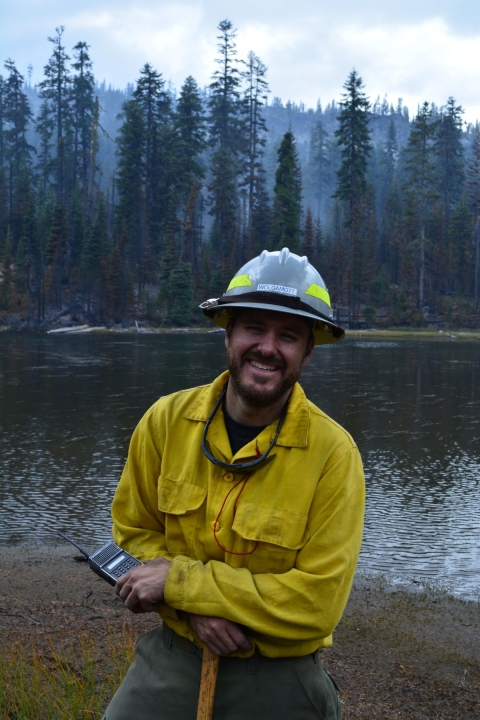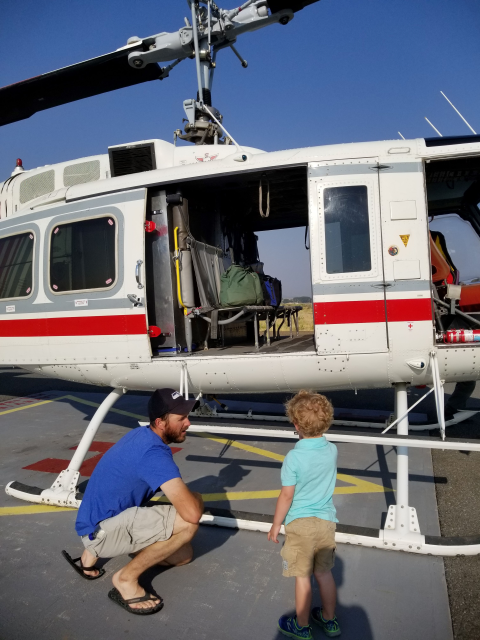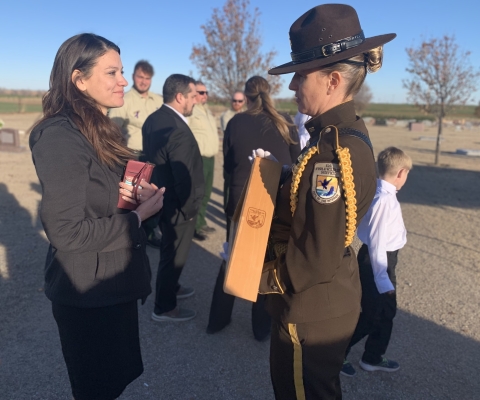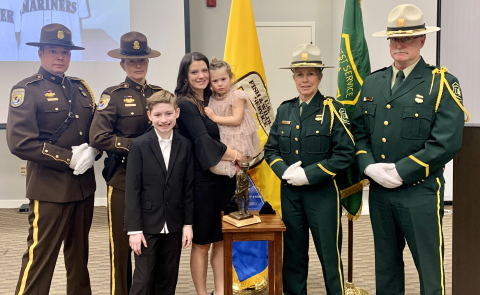After a two-year battle with cancer, Tule Lake National Wildlife Refuge firefighter, Brian Wolgamott, passed away at the age of 42 on November 28, 2024. Brian started his wildland fire career in 2012, and like many federal government employees, he moved to various locations over the years. In 2022, after many years working with the USDA Forest Service as a firefighter, Brian and his family accepted a position with the Fish and Wildlife Service wildland fire program at the Klamath Basin refuges in Tule Lake, California as a fire engine operator and fire planner.
Shortly after accepting his position with the U.S. Fish and Wildlife Service, Brian and his family found out he had cancer. He immediately began cancer treatments in Seattle, Washington, while he continued to work. Despite his diagnosis and many long days of travel to receive treatment, Brian maintained a positive attitude and a hearty sense of humor.
Throughout his treatments, Brian remained a dedicated U.S. Fish and Wildlife Service employee.
“Brian's unwavering strength and dedication to his profession, even in the face of adversity, truly stands out,” said Ken Griggs, Project Leader of the Klamath Basin National Wildlife Refuge Complex. “Despite the challenges posed by chemotherapy, Brian didn’t take a back seat and maintained his fitness and fire qualifications for as long as possible.”
When he was no longer able to staff a fire engine, Brian stepped up to support his refuge in other ways. He took on tasks such as water quality monitoring, reprogramming radios, maintaining the local wildland fire supply cache, and serving as the station’s safety officer. Last summer, Brian continued to support operations on the many large wildfires in the northwest as a dispatcher. He completed his last fire assignment just a month before he passed.
“Brian's relentless work ethic shone through as he continually sought ways to make impactful contributions to the team,” said Griggs.
When remembering Brian, Troy Parrish, Klamath Basin Refuge Complex fire management officer, shared a story from the previous summer when, in the thick of receiving chemotherapy, Brian was still the first to volunteer and help a coworker unload a truck of firewood.
“Brian consistently proved to be a man of his word. Whenever I needed someone reliable to get a job done, Brian was undoubtedly my first choice,” said Parrish.
To his friends and family Brian was charismatic and always extending a helping hand. He shared his love of adventure and athletics with his wife, Marie and their three children, Bryton, Maddox, and Elsie.
U.S. Fish and Wildlife Service wildland fire leadership and an interagency Honor Guard supported the Wolgamott family in honoring Brian’s life. Brian was brought home to his final resting place with dignified transport and under a 24-hour Honor Watch. The Honor Guard held a memorial service and burial with full honors for Brian, and he was laid to rest in his service uniform.
Brian's wishes are to spread awareness, especially to his brothers and sisters in wildland fire, to advocate for themselves and to get cancer screenings early and often.
The U.S. Department of Labor Office of Workers’ Compensation Program deemed Mr. Wolgamott’s cancer to be proximately caused by employment in federal fire protection activities under the Federal Employees’ Compensation Act. As such, the U.S. Fish and Wildlife Service determined Mr. Wolgamott’s death qualified as a line of duty death.
The Federal Wildland Firefighter Health and Wellbeing program is working to better understand and mitigate the unique environmental and occupational hazards wildland firefighters experience. To learn more about the program and support available to wildland firefighters, visit: https://www.doi.gov/wildlandfire/occupational_health








